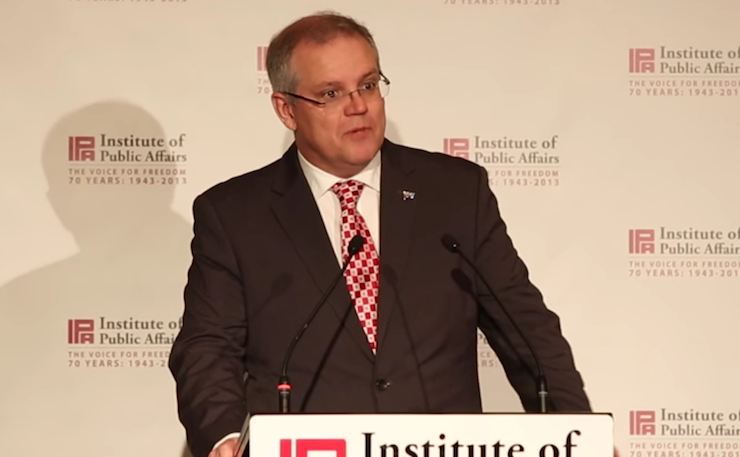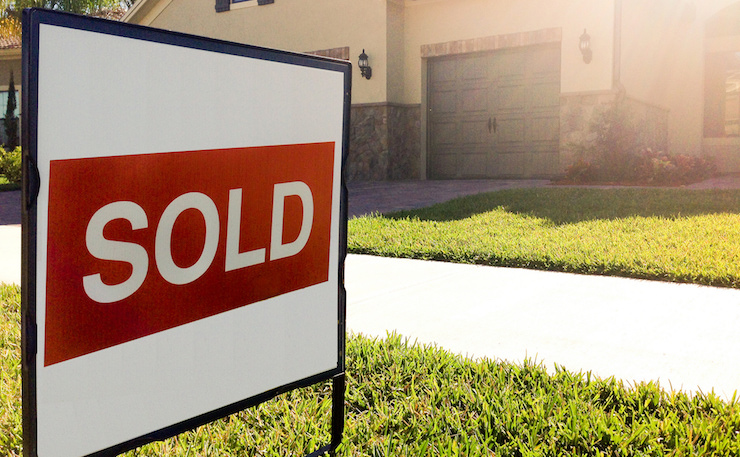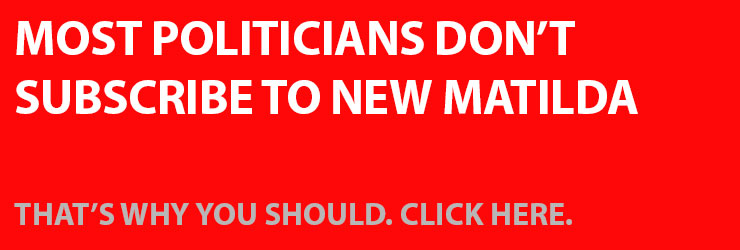Labor’s new stance on negative gearing could be a game-changer, and not just for those struggling to pay the rent, writes Ben Eltham.
It’s taken more than a year of patient and cautious development, but Labor’s focus on policy is starting to bear fruit.
We saw that on the weekend with the release of the ALP’s new policy on negative gearing. If elected, from July 2017, Labor will restrict negative gearing for property to new dwellings. Labor is also committing to winding back the capital gains tax discount, from 50 to 25 per cent. Together the two changes to the tax system could raise $32 billion over the next decade (according to Labor, at least).
The new policy puts the party on the front foot. While the government dithers, the opposition has seized the initiative on tax reform. 72 hours in, Labor’s announcement has been surprisingly well-received. Perhaps the bogeyman of negative gearing is not as “courageous” a reform as many first feared.
One of the reasons Labor’s announcement is doing better than expected is that Australia’s housing market has become very unequal. Ordinary Australians understand this, as they see house prices spiral ever upwards and the younger generation condemned to rent, in some cases for their entire lives.
There are many reasons for this. Australian policymakers have long rigged the housing market in favour of landlords, and against renters. Renters have few rights and little security; landlords enjoy big tax breaks. Australia’s population is clustered around five major cities, with little support or investment in regional cities where housing is cheaper. New jobs tend to be created in knowledge-intensive industries in the centre of capital cities. High-quality transport links to outer suburbs and regional areas are often lacking. Until recently, Australian cities haven’t built enough new dwellings, with property investment concentrated in existing assets. Finally, Australian banks have embarked on a 25-year binge in home lending, bidding up the price of housing even while household debt levels increase.
The result has been high levels of house price growth, and ever-decreasing housing affordability. Australia was lucky to escape a significant housing market correction in 2009 in the wake of the global financial crisis. If one were to occur, it could be a wild ride for the big four banks and the broader economy.
It’s past time to reform Australia’s antiquated negative gearing system. The notion of giving landlords a tax break for losing money on their property investment finds few supporters among economists. The policy has been around since before the Second World War, and yet despite its longevity, it would appear to have done little for housing supply. Nor does it help first-home buyers, who find the price of existing housing distorted.
Renters are perhaps the real victims of Australia’s current property market. The myth that negative gearing keeps rents low dies hard, but a myth it is. Careful research has established that abolishing negative gearing in the 1980s had little impact on rent levels. Rents in Australian capitals are essentially about the balance of supply and demand between prospective tenants and available dwellings. The current system is clearly failing: 60 per cent of low-income renters are in housing stress, and the situation has been worsening for some time. Capital city rents rose at twice the rate of inflation between 2005 and 2010. Meanwhile, government support for public housing is falling.
Some will say Labor hasn’t gone far enough. After all, the ALP policy will “grandfather” landlords who are already negatively gearing, and apply only to new purchases of property. Labor is championing housing affordability, but has so far made no announcement on extra support for public housing. Nor is there any new funding for the National Rental Affordability Scheme – gutted by the Coalition in 2014.
Having said that, Labor’s policy is certainly a step in the right direction. The next step, as Melbourne University’s Caroline Whitzman argues, should be a national affordable housing strategy. This policy should look at more than just negative gearing and capital gains tax. Critically, new housing must be built for the poor.

Beyond the policy particulars, the politics of housing suddenly looks like fertile ground for the opposition. Treasurer Scott Morrison has been manifestly struggling in his new job, a potential weakness that Labor thinks it can exploit. Morrison is a former executive at the Property Council, a fact that Labor will be sure to point out whenever he opens his mouth to defend landlords.
The new announcement also builds on a surprisingly impressive suite of policies from Labor over the past year. Under Bill Shorten, the ALP has released more than 50 separate policies, making it one of the more active oppositions in recent decades. While some have sunk without trace, others are starting to resonate.
Indeed, at this point in an election year, Labor has a far more substantial policy platform than the government.
One of the interesting things about these policy announcements is that Labor has built up a war chest. The opposition says it has identified around $100 billion of proposed savings and extra revenue over the next decade. Some of this money has been earmarked for spending, like extra funding for the Gonski schools reforms. Some will no doubt be promised towards deficit reduction. But there should still be plenty of money for upcoming election promises.
In contrast, Malcolm Turnbull’s administration has found the going unexpectedly tough. This is surprising for a government led by the most popular prime minister since Kevin Rudd. There has been instability and confusion. A string of integrity scandals has seen the government jettison Mal Brough, Jamie Briggs and now Stuart Robert, while retirements have forced two cabinet reshuffles already.
Meanwhile, Turnbull’s decision to retreat on the GST increase has left the government without a coherent narrative on tax reform, a vacuum that Labor has gladly occupied. The negative gearing announcement has again put the government on the back foot, as it decides whether to attack Labor for the policy, or to steal it and claim it as its own.
None of this may matter come election day, especially if Bill Shorten continues to underwhelm swinging voters. But while he still languishes in the preferred prime minister polls, Shorten is at last beginning to show a bit of fight.
Shorten’s speech to the New South Wales Labor faithful on Saturday was a good one, reminding the delegates that he had already defeated the 2014 budget, witnessed the demise of Tony Abbott and packed off Joe Hockey to Washington. “My team and I are not running for an honourable loss,” Shorten argued, and he was surely being honest, because if Labor loses then his leadership will be over. It might have been bluster, but after a long and dreary summer, the ALP seems re-energised and ready for the fight.
All of a sudden, Labor is winning the battle of political ideas. That must be worrying for Prime Minister Turnbull, who has been so keen to proclaim his own “ideas boom.”
Donate To New Matilda
New Matilda is a small, independent media outlet. We survive through reader contributions, and never losing a lawsuit. If you got something from this article, giving something back helps us to continue speaking truth to power. Every little bit counts.





